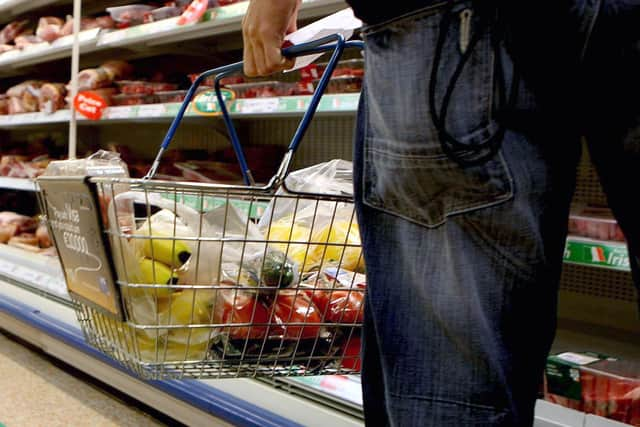Trust in supermarkets at lowest level since horsemeat scandal, Which? finds
Which?’s monthly consumer insight tracker found that trust in the sector dropped in August to its lowest level since February 2013, when horse DNA had been discovered in frozen beef burgers and lasagne sold in some Irish and British supermarkets.
The sector received a ‘trust score’ of 30 on a scale from minus 100 to 100 this month, compared with 24 after the horsemeat scandal was exposed – its lowest point – and 68 in May 2020 when supermarkets were widely praised for ramping up online deliveries in response to Covid restrictions.
Advertisement
Hide AdAdvertisement
Hide AdFood prices, which continue to outstrip overall UK inflation, are now on a par with energy bills as a source of concern to consumers, with Which?’s findings indicating that they worry 85 per cent of people.


Less than half of shoppers (48 per cent) said they trusted the supermarket sector to act in their best interest, and 18 per cent said they did not trust the sector.
Which? found 78 per cent of consumers had adjusted their habits in response to high food prices, with 54 per cent buying cheaper products, 48 per cent opting for budget range items, and 24 per cent going without some food.
One in seven shoppers (15 per cent) said they were skipping meals to cope with high food costs.
Advertisement
Hide AdAdvertisement
Hide AdThose who are unemployed (26 per cent) and renters (24 per cent) were most likely to skip meals, according to the survey.
Katie Alpin, head of strategic insight at Which?, said: “Month after month of soaring food prices has seen trust in supermarkets plummet to a 10-year low – comparable to the dark days of the horsemeat scandal.
"The cost of the weekly shop is now on a par with energy bills as the biggest worry for millions of households.
“Supermarkets have the power to ease the huge pressure faced by shoppers, especially families and those on low incomes, by putting low-cost budget range items in hundreds of more expensive convenience stores. Which? research has found that these stores rarely, if ever, stock the cheapest products.”
Advertisement
Hide AdAdvertisement
Hide AdFigures released earlier this month revealed that inflation had slowed to its lowest level for 17 months in July due to a fall in energy prices.
The Office for National Statistics (ONS) said Consumer Prices Index inflation was 6.8 per cent in July, down from 7.9 per cent in June.
Economists said that, despite the slowdown, there is still significant pressure on the Bank of England to continue with recent interest rate hikes to drag inflation firmly lower.
Rates are expected to increase from the current rate of 5.25 per cent, which is already a 15-year-high, to 5.5 per cent next month. Financial markets have forecast it could peak around 6 per cent by the start of next year.
Advertisement
Hide AdAdvertisement
Hide AdSpeaking earlier this month, George Bibb, head of the IPPR’s centre for economic justice, said: “It’s good news that headline inflation is lower, especially with energy bills coming down, but there is a very real risk that a recession may soon overtake price rises as the main economic concern. Other countries have brought inflation under control quicker than in the UK, with more support for households and workers avoiding unnecessary pain.”